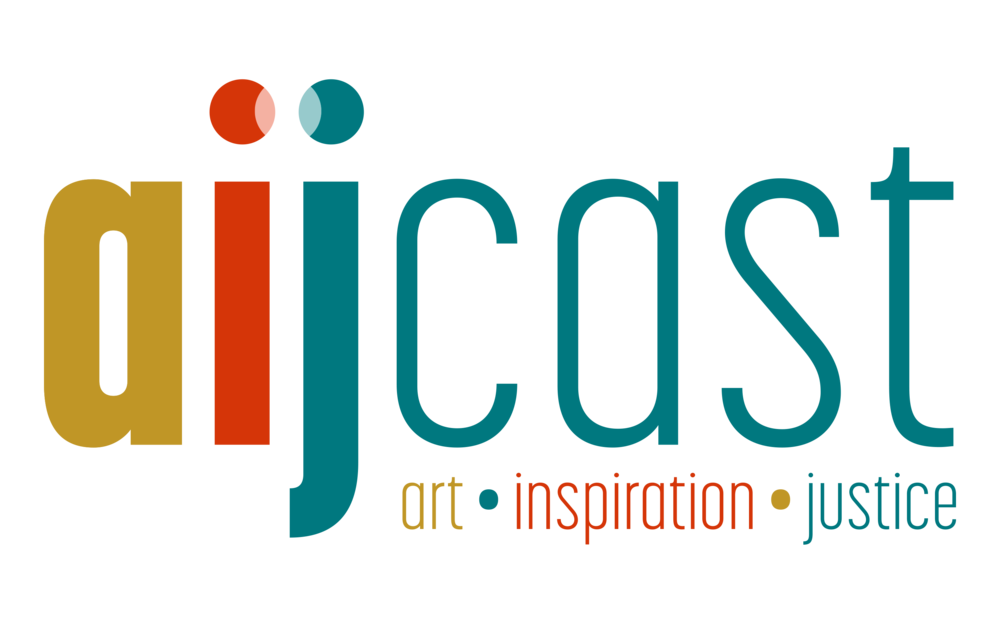Hey, Friends. This is Marthame, host of aijcast, coming to you on Friday, June 5, 2020.
As a heads up, I am going to talk about what is happening in the news lately, especially as it pertains to police violence against unarmed black people.
Normally, we’d be releasing a new podcast episode today: the one that is lined up and just about ready is an interview with Sam Yenn-Batah, a multi-instrumentalist working as a hospital chaplain in New Jersey. He shares his love of music, his difficult work in the midst of COVID-19, and his experiences as a Black man, born in Ghana and growing up in southwest Atlanta.
This profound conversation, however, happened before George Floyd was murdered, before the proliferation of renewed protests against white supremacy and police brutality. If I talked with Sam today, our conversation would be different, and the one recorded three weeks ago feels disconnected and unresponsive to our present reality. So I’m holding on to Sam’s episode for a bit and instead sharing some words for this moment.
So what are the words for this moment?
If you’re here, you are probably already invested in hearing the voices - especially Black voices and other voices of color and LGBTQIA+ voices - of artists seeking to make the world a better place. So talking to y’all feels a bit like preaching to the choir. What can I possibly say that would be of any use right now? All I can say is that I’ll do my best.
First, to my Black friends, colleagues, and listeners: I love you, I see you, I am listening to you, I affirm you, and I seek to amplify your voices in any way I can.
Second, to all of our listeners: Let me assert that I personally, and Aijcast as a community, affirm that Black Lives Matter because black people bear the sacred image of God. We affirm that the history of suppressing, subverting, negating, abusing, kidnapping, raping, and killing of Black bodies, minds, and spirits is real. It is systemic. It has been part of our nation from its founding up until today. All white people, myself included, are beneficiaries of this racist history. We and our ancestors have benefitted from the systems that have oppressed Black people.
Third, to my white friends, colleagues, and listeners: The burden of working to fix these systems is on us. It is inaccurate, unfaithful, and a cop-out to say “it’s not my fault, because I’m not a racist.” I don’t have time to unpack everything that is wrong with that statement, but what should be clear with even a brief glance is this: We White Americans are all complicit. We are all at fault. And we need to actively take steps to fight for justice and dismantle the systems of oppression. There are a multitude of ways of doing so, and these are things that we white folk need to do ourselves without expecting our Black friends, neighbors, and colleagues to do the heavy lifting for us. They have enough to deal with right now; instead, listen to them. Love them. Support them.
As a suggested starting point, here are some things that I have been doing, and invite you to consider them as well. We have shared links and further details to all of this in the episode notes and on our website:
Reading and Learning is critical. As starting points, I recommend Ta-Nehisi Coates’ book Between the World and Me, Ahmir “Questlove” Thompson’s 2013 reflection “Trayvon Martin and I Ain’t Shit”, and John Biewen’s podcast, Scene on Radio, especially seasons two and four.
Listening to Black voices: This is true of reading and learning, as well as in my private and personal world. In my conversations with Black friends and colleagues, I try my best to let them lead the conversation, if they even want to talk to me right now. The idea of decentering myself has been helpful to me.
Amplifying Black voices: This has been a critical part of Aijcast’s mission from day one. You can also follow Black movement leaders on social media and share their voices within your white social circles.
Financial Engagement: There are a number of methods to speak with your wallet, including ways to donate and shop. The Movement for Black Lives is an excellent starting point for both.
Political Advocacy: Calling, writing, and voting are still critical parts of systemic change. Hold your elected officials accountable, and make sure that their symbolic gestures are backed with real world consequences that address policing and the root causes of systemic inequities.
At Aijcast, we covenant with you to work to dismantle this nation’s original sin of White Supremacy. We will continue prioritizing the voices of black artists. And we will steward this platform that you, our listeners, have granted us in order to be faithful, stumbling, imperfect, growing allies in the struggle for a world that we believe God desires – that is, one which continues to dig out the painful roots of our systems of racial oppression so that all of humanity may flourish, knowing life, and life abundant. There can be no true beauty in the world until it is beautiful for all.
We will return with regularly scheduled episodes as soon as we can, likely next week.
Until then,
Peace. And Power.

